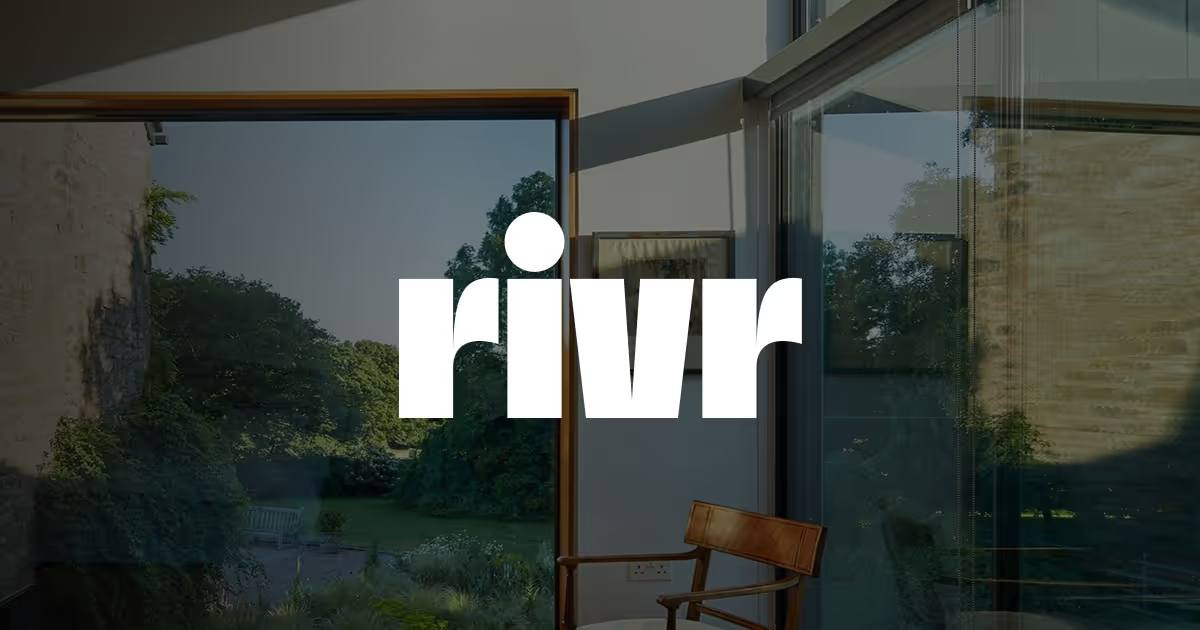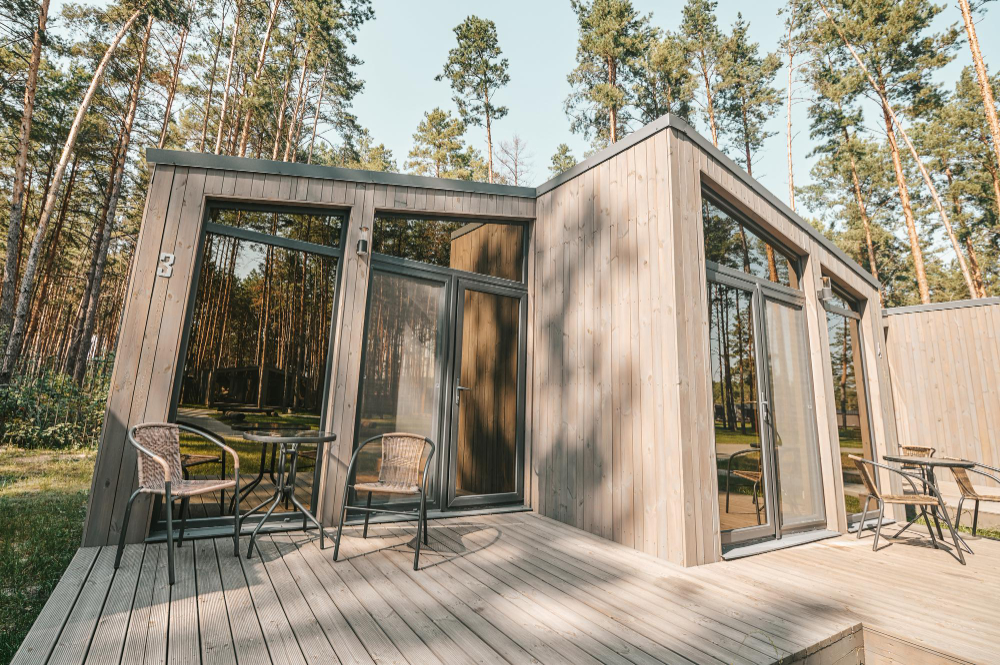.jpg)
Do You Need Building Insurance? 10 Reasons You Might
If you are buying, owning, or renovating a home, one question arises early: do you need building insurance? For most homeowners, the answer is yes, though the reasons vary with property use, mortgages, and long-term plans.
For high-value homes, where sums insured and fixtures need specialist attention, rivr provides digital-first buildings cover that keeps protection clear and tailored.
This guide sets out what buildings insurance covers, how it differs from contents insurance, and the risks of leaving gaps. It also explains common exclusions, rebuild cost checks, and how excess and policy limits apply.
1. Mortgage requirements
Most mortgage lenders will not release funds until you can show proof of suitable buildings insurance. This protects both you and the lender against the cost of repairing damage to the structure of your home if something serious happens.
Cash buyers face no legal requirement, but the financial exposure remains the same. Without cover, you personally pay for rebuilding if fire, flood, or another insured event destroys the home.
2. Protection for the structure of your home

Buildings insurance covers the structure of your home and permanent fixtures such as walls, roof, floors, fitted kitchens, and bathroom suites. Outbuildings and external features like garages and gates may also be covered, subject to your policy schedule.
If a storm strips roof tiles or falling trees damage a wall, a claim can cover the cost of repairing damage provided the cause meets the insured event definition. Routine wear and tear is excluded.
3. Cover against major insured events
Standard buildings insurance policies cover damage caused by:
- Fire
- Storm or flood
- Theft or attempted theft with damage to the property
- Escape of water from a burst pipe
- Damage caused by falling trees or branches
For example, if a burst pipe ruins ceilings and floors, buildings insurance covers repairing or rebuilding those parts, while contents insurance covers replacing items like rugs or electronics.
4. Long unoccupied periods and major works

If a home is left unoccupied for several weeks, many insurers restrict cover for theft, water damage, and accidental damage. Likewise, if you plan major renovations above a set value, you usually need to notify your insurer or risk invalidating cover.
For properties left empty for longer or during substantial works, some insurers withdraw standard protection. In these cases, it can be worth considering providers with specialist unoccupied property expertise. Contact our team directly and we can arrange for specialist unoccupied property cover, or renovation insurance.
5. Alternative accommodation cover
If your property cannot be lived in after an insured event, buildings insurance policies often provide alternative accommodation cover. rivr offers up to three years of alternative accommodation for you and your pets.
This ensures you are not left paying the extra cost of temporary housing while your home is being repaired or rebuilt. Always check policy limits in advance.
6. Protection for listed or heritage homes
Repairs to listed homes or homes in conservation areas often need consent and like-for-like materials. Specialist trades and sourcing push costs up. Choose buildings cover that allows reinstatement to original standards.
With a rivr-authorised chartered survey dated within the last three years, and if you insure your buildings for the survey figure, rivr will pay the full cost to repair or rebuild even if it exceeds the sum insured, except for Grade 1 listed buildings.
7. Property owner’s liability
If part of your property causes injury or damage to others, such as a falling roof tile or a wall collapse, you could be held legally responsible. Buildings insurance often includes property owner’s liability cover to protect against these claims.
With rivr, liability cover extends up to £5 million. The policy also includes up to £10 million of employer’s liability if domestic staff are injured or die while working at your home. Together, these protections ensure homeowners are covered against high-cost legal claims linked to their property.
8. Home emergency cover and optional extras
A failed boiler, pest infestation, or burst pipe may require urgent intervention. Some insurers offer home emergency cover as an add-on. rivr includes home emergency protection with a 24-hour helpline and up to £2,500 per call-out.
Other optional extras include accidental damage cover, which protects against sudden incidents like drilling through a pipe or breaking a bathroom suite. With rivr, accidental damage is included within standard buildings insurance.
9. Landlords, second homes and holiday homes
.jpg)
Landlord insurance isn’t a legal requirement, but many lenders expect it and standard home policies often exclude letting. It covers the building and your landlord liabilities; tenants should insure their own contents.
For second properties, especially those left empty for a long period, holiday home insurance may be necessary. Policies take into account unoccupied periods, which often restrict cover for theft or water damage unless specific precautions are taken.
10. Peace of mind against high-cost repairs
Repairing or rebuilding after a disaster (like a flood) can cost hundreds of thousands of pounds. Without cover, you pay these sums yourself. Even partial losses such as structural damage to a roof or walls after a fire can run into tens of thousands.
Buildings insurance policies ensure the insurer pays the cost of repairing or rebuilding, subject to limits and exclusions, so you can restore your home without financial shock.
What’s not covered by buildings insurance?
Common pitfalls and how to avoid them
- Underestimating rebuild cost: Review sums insured after extensions or renovations.
- Confusing contents and buildings cover: Remember contents insurance protects personal items, buildings insurance covers the structure.
- Failing to declare building works: If contract values exceed £75,000, disclosure is mandatory.
- Leaving a property unoccupied too long: For rivr, more than 45 consecutive days without overnight occupancy may restrict cover.
- Ignoring excess and policy limits: Read schedules in detail to understand what you may still need to pay.
Buildings insurance checklist
rivr cover: Safeguarding your high-value property

rivr is a high-value, digital-first home insurance provider focused on clarity and speed. We provide tailored buildings insurance and contents insurance for primary residences, with features including accidental damage cover, home emergency assistance, and up to three years of alternative accommodation cover.
If your property will be left unoccupied for a long period due to probate, renovation, or extended travel, we can help you stay protected with the right level of cover.
Find the right cover for your high-value home today.
Read more
Frequently asked questions
No. There’s no law requiring buildings insurance in the UK, but most mortgage lenders make it a lending condition. Without cover, you’d be personally responsible for any rebuild or repair costs.
Yes. Buildings insurance isn’t legally required to sell a property. The buyer will normally arrange their own cover from exchange of contracts, especially if a mortgage is involved.
Not usually. Most mortgage lenders require buildings insurance from the point of exchange. Cash buyers aren’t required to have it but would carry the financial risk if the property were uninsured.
Premiums vary depending on the rebuild cost, location, property type, and level of cover. Average UK buildings insurance typically costs a few hundred pounds per year, but high-value or listed homes may cost more. Always base cover on the rebuild cost, not the market value.
You may need high-value buildings insurance if your home has a rebuild value over £1 million, is constructed from non-standard materials, or is a Listed property.
These homes often require specialist cover to reflect their higher rebuild costs and their unique features.
Yes. Rivr can insure Grade I, Grade II* and Grade II listed homes in England and Wales, and Category A, B and C listed properties in Scotland, subject to underwriting review.




.jpg)
